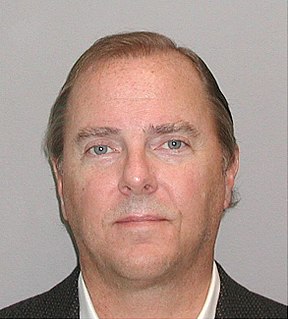A Quote by Fulton J. Sheen
Some representatives of monopolistic capitalism, sensing this evil in their system, have tried to silence criticism by pointing to the diffused ownership in the great corporations. They advertise, "No one owns more than 4 percent of the stock of this great company." Or they print lists of stockholders, showing that these include farmers, schoolteachers, baseball players, taxi drivers, and even babies.
Quote Topics
Babies
Ball Players
Baseball
Baseball Player
Baseball Players
Capitalism
Company
Corporations
Criticism
Drivers
Even
Evil
Farmers
Great
Great Company
Include
Lists
More
Ownership
Owns
Percent
Players
Pointing
Print
Representatives
Sensing
Showing
Silence
Some
Stock
System
Taxi
Taxi Driver
Than
Tried
Related Quotes
When you're in a start-up, the first ten people will determine whether the company succeeds or not. Each is 10 percent of the company. So why wouldn't you take as much time as necessary to find all the A players? If three were not so great, why would you want a company where 30 percent of your people are not so great? A small company depends on great people much more than a big company does.
The slave states of Western world are an outgrowth of monopolistic capitalism - an economic system which is opposed to the wide distribution of private property in many hands. Instead, monopolistic capitalism concentrates productive wealth among a few men, allowing the rest to become a vast proletariat.
The left's obsession with corporations as a spawn of evil is pathological paranoia. A corporation is just one form of organizing a private business enterprise for purposes of limiting personal liability, issuing stock, filing financial reports and paying taxes. Other forms include partnerships and sole proprietorships. Are they less evil? You buy your groceries from corporations, your cars, newspapers, cellphones, clothing and exercise equipment. Your parents and children work for corporations. Are they evil?
When you buy enough stocks to give you control of a target company, that's called mergers and acquisitions or corporate raiding. Hedge funds have been doing this, as well as corporate financial managers. With borrowed money you can take over or raid a foreign company too. So, you're having a monopolistic consolidation process that's pushed up the market, because in order to buy a company or arrange a merger, you have to offer more than the going stock-market price. You have to convince existing holders of a stock to sell out to you by paying them more than they'd otherwise get.
I hope corporations will dedicate a percentage of their top innovators' time to issues that could help people left out of the global economy. This kind of contribution is even more powerful than giving cash or offering employees' time off to volunteer. It is a focused use of what your company does best. It is a great form of creative capitalism, because it takes the brainpower and makes life better for the richest, and dedicates some of it to improving the lives of everyone else.
If you start with the presumptions that liberals do, that corporations are evil and it all descends from that and that government is great and that government's there to make sure corporations play fair and are not mean and do not rip people off, there's a little bit of truth in everything. Some corporations are bad, some corporations have done bad things, but as a general rule, it's dangerous to subscribe to things like that.
Speaking about our largest oil company Rosneft, and I recalled in the beginning that almost 20 percent of it [19.7] belongs to BP. Who's company is that? British Petroleum, isn't it? I suppose that is not bad. I have to tell that British Petroleum's capitalization is significantly related to the fact that it owns more than 19 percent of Rosneft, which has vast oil reserves both in Russia and abroad. This has its impact on the company's stability as well.
One of our great strength, world capitalism, is the most successful economic system possible, but has also become one of shorter and shorter cycles of evaluation. CEOs, companies, stocks, profits and debits change at an ever more accelerated pace in response to the demands of stockholders and the market. We have already experienced some consequences of the shortening cycle of decision making in business, but those are minor in relation to the grand systemic collapse that always eventually results from such accelerating and shortening periods for leadership goals.





































